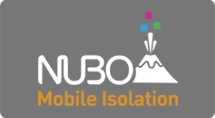The COVID-19 pandemic forced organizations worldwide to transition rapidly to remote work. Companies that had never considered remote work had to adapt quickly, and while it was challenging, remote work proved to be a viable option for many. However, after the initial surge of remote work due to the pandemic, there was a significant decline as many organizations experienced productivity and organizational issues. In this blog post, we will discuss why remote work is here to stay and how organizations can overcome its challenges.
The rapid transition to remote work had various effects on both organizations and employees. From an employee perspective, remote work was seen as a much more economical work method, saving them money on commuting, food, and clothing. Employees could also take their work wherever they wanted, be it at home or on vacation, and still deliver the expected results. From an organizational perspective, many found that productivity decreased due to a lack of proper communication, inadequate technology, and insufficient infrastructure. Other issues that organizations had to deal with were the lack of supervision, decreased team collaboration, and team isolation.
However, despite these challenges, remote work proved to be an effective option for many organizations. Employees appreciated the work-life balance, flexibility, and autonomy that remote work offered, leading to increased job satisfaction and retention. Companies also realized that remote work could save them significant costs, such as office rent and maintenance expenses.
Today, the remote work situation is somewhat complex. Some companies prefer having their employees work physically in offices and less remotely. There are various challenges from both organizational and employee perspectives that need to be addressed. From an organizational standpoint, some companies believe that remote work affects employee productivity, and it is hard to supervise workers in remote settings. Other challenges include lack of physical interaction and difficulty in creating and maintaining a company culture remotely. From an employee perspective, some feel that remote work leads to feelings of isolation, disconnection from colleagues and the workplace, and a lack of clear boundaries between work and personal life.
However, the future of remote work is bright. Although there is currently a decline in remote work, in the future, the trend in favor of remote work will dramatically change and even grow. The pandemic has demonstrated the effectiveness of remote work, and employees who see the great benefits of remote work will insist on working remotely, which companies will see as a challenge they will have to deal with.
When companies eventually understand that remote work is the way forward, they will need to sharpen remote work methods, tools, and techniques. The remote work infrastructure needs to be improved, and organizations must find ways to measure productivity and quality of work, so they can be confident that they are getting the most out of their remote workforce. Companies that are slow to adapt to this new reality will find themselves at a significant disadvantage.
Remote work has the potential to revolutionize the way we work, making it more flexible, efficient, and productive. Organizations cannot afford themselves to wait for the turning point to happen, as they will lose valuable time, productivity, competitive advantage, and reputation. They will need to adopt remote work but modify and improve all procedures, methods, and tools to address all the challenges. Remote work is here to stay, and organizations that embrace this new way of working will reap the benefits in terms of increased productivity, employee satisfaction, and cost savings.
In conclusion, the future of work is remote, and organizations that embrace this new way of working will thrive in the years to come. However, to make remote work successful, companies must address the challenges it presents and implement new procedures and tools to support their remote workforce. The pandemic has accelerated the shift towards remote work, but it is up to organizations to make this new reality work for them and their employees. By doing so, they can reap the benefits of increased productivity, employee satisfaction, and cost savings while contributing to a more diverse, sustainable, and innovative future.










